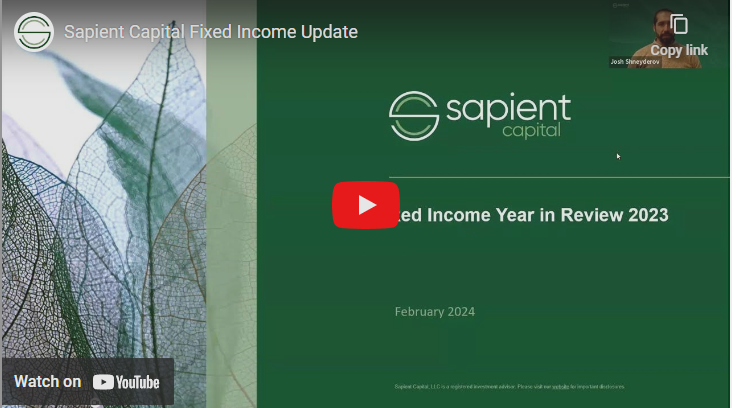What makes Warren and Charlie so different?
[15 minute read].
Next week will see the annual migration of the world’s nerdiest herd of wildebeest across the plains of Omaha to the Berkshire Annual Shareholders meeting. There they hunch over the trough of wisdom flowing from the mouths of oracles Warren Buffett and Charlie Munger.

There are over 1,000 books about Buffett listed on Amazon. This speaks to the belief that internalizing the folksy lessons from Warren and Charlie can make you a better investor.
But, if these insights are so widely known, it’s highly unlikely they will produce exceptional performance. Don’t follow the nerd herd. In fact, the application of rigid rules might be close to the opposite of how Warren and Charlie have become wise investors.
I found the reason why both very challenging to understand and even harder to explain. I found it’s a weird mix of obvious and subtly profound.
Intelligence is measurable and demonstrable. It can be signaled by IQ, CFAs or Ivy League diplomas. It’s now also table-stakes to the point of sometimes becoming a hindrance, as Bennet Goodspeed writes in the Tao Jones Averages:
“The left-brained analytic system on Wall Street has become overdeveloped. Like a tree that has grown too large for its place in the forest, it has crowded out intuition, vision, creativity, and gestalt sensing, which are the properties of the right hemisphere. As professionals of the Street continue to try to overpower darkness, opportunities will exist for those who can sense new directions.”
One of my irrational dislikes is the cognitive bias and mental model obsession among younger investors. This is because I suspect rules are often misused as closet compensation for a lack of experience.
But there appears to be a conflict here; as one of Charlie Munger’s most famous concepts is the importance of using a “latticework” of mental models. This contradiction is something noticed by the magnificent Cedric Chin.
I’ve long puzzled over Charlie Munger’s thinking style. Munger is Warren Buffett’s business partner, and a legendary investor in his own right. He has this thing where he says that you must have a ‘latticework of mental models’ in your head if you want to be a great stock picker. If you are a long-term reader of Commonplace, you’re probably familiar with my critique of the mental models obsession that seems to have overtaken self-help land. Plenty of writers have adopted Munger’s approach to an extreme: they go on and on about context-free mental models without ever asking: how does Munger actually use those models in practice?
And so therein lies the puzzle: in the years since I first investigated the whole mental models shebang, I’ve read a lot by Munger and about Munger — and as far as I can tell … Munger spends a lot of time reasoning by analogy.
Essentially he often says things like “this reminds me of when”. I’ve spent several months exploring why that’s important. And it’s REALLY hard to understand.
How to be a wise investor?
Our obsession here at Sapient Capital is on the acquisition of wisdom in life and investing. I’m well aware that even talking about wisdom makes you sound pretentious. But exploring topics that people are reluctant to discuss also creates great opportunities.
Columnist Jason Zweig recently wrote a short piece on the “Seven Virtues of Great Investors.” He believes these are:
- Curiosity,
- Skepticism,
- Independence,
- Humility,
- Discipline,
- Patience
- Courage.
What struck me from that list is that none of them are “intelligence” and many of them are derivatives of wisdom’s key trait: openness. A 30 year meta-study found that wisdom is robustly associated with openness but not age or intelligence. We all know people for whom intelligence and seniority have become arrogance and inflexibility. In contrast, openness is defined as an “appreciation and tolerance of new ideas, values, and experiences.” A key determinant of wisdom seems to be flexibility in the face of new information.
But saying “be more open” and “correct your mistakes” is vague to the point of useless.
How do “open” people act in real life?
I think Cedric Chin, as usual, has a big part of the answer in his work on Rand Spiro’s Cognitive Flexibility Theory (CFT).
A central tenet of CFT is incredibly counterintuitive, which has made it really hard to grasp. But it helps explain why Charlie Munger reasons from analogy.
Like most people, I was told that thinking from first principles is the way you understand anything. Rules come first. But CFT argues that “ill-structured” domains like investing are so variable that there are rarely any consistent first principles that apply to every situation. Reality is simply too messy. Instead, the right approach is to consume a vast number of case studies, in order to understand all the various ways principles may appear in the real world.
This approach is somewhat at odds with the blogs, threads, listicles and books that are focused on revealing the “10 universal principles of success.” Sure, these may exist, but they’re useless without understanding how to apply the principles- especially given the way the principles show up are always different. It’s about understanding the power of context. This is why you can’t get as rich as Warren and Charlie by following rules. Intelligence can quote Warren and Charlie, chapter and verse, but wisdom might actually help reproduce their results.
Cedric tells us that true experts tend to do two things:
1. They construct temporary schemas by combining FRAGMENTS of prior cases.
2. They have something called an ‘adaptive worldview’, which means they do NOT think there is one root cause or framework or model for any event.
Put simply- their “openness” gives them a powerful intuitive database to draw from.
One of my friends is an experienced heart doctor. He told me that the single most predictive factor in whether a patient was going to go into cardiac arrest was the subjective assessment of a veteran nurse. But the nurse could never isolate one single factor, it was an intuitive sense of the patient’s entire demeanor, their whole self. She was “combining fragments” of prior cases by noticing an endlessly variable combination of potential signals. Cedric makes a similar point:
When you or I (that is, non-doctors) think of a heart attack, we probably imagine a prototype of a heart attack in our heads. That is, we imagine what we think is an ‘ideal’ heart attack, where a person falls over and clutches his or her chest. Expert doctors do not do this. They do not reduce a concept like heart attack to just one prototype. They instead have a collection of prototypes in their heads, that they can assemble fragments from.
What an adaptive worldview means is that whenever you learn a new concept in an ill-structured domain, you know not to oversimplify — that is, to represent it as a single principle or concept. You do not try to reduce. You instead know to search for new, different cases in order to collect a cluster of prototypes in your head, and let that cluster inform your understanding of the concept. If you encounter a new case, you update the concept, because the concept is only useful when you know how it is instantiated in reality.
Dr. Iain McGilchrist also confirmed that his most valuable “suicide detection indicator” was an auxiliary nurse with 30 years of experience. The key determinant of the power of her intuition was her experience. She had seen a lot of cases.
Experts consume a wealth of case studies, stories and history, but not only to create hard-and-fast rules. They also do it to build a massive database for their intuition. Each new situation is an opportunity to update the model, rather than something to be overfitted to a stale one. One way to think of it is that reality is so variable and complex that you don’t always know which part of which story will be useful in advance.
Perhaps most importantly for these chaotic times, deep expert intuition is able to respond to increasingly novel circumstances far more effectively.
You typically need to be older to have compounded wealth; about 97% of Warren Buffett’s net worth came after his 65th birthday. It’s a lot more surprising that wisdom doesn’t correlate that strongly with age, especially since experience determines the power of intuition. I think this is because experience can be accelerated (Cedric’s work linked below covers a lot of the “how” beautifully). This helped explain to me why medical residency is such a brutal hazing: it’s the accelerated acquisition of expertise in a high-consequence environment with a master giving you rapid, harsh feedback. You’re not learning rigid rules as much as gaining flexible intuition. Expertise can also be accelerated by simulations and games with rapid feedback from experts.
More than ever before it’s tempting to use the “15 minute book summary” apps, or ask ChatGPT to extract the key points. But in pursuit of wisdom, sometimes it’s better to seek out the richest, most accurately-researched stories. [This is a strong endorsement for content like David Senra’s superb Founders podcast].
“What we see is not all there is.”
When writing this piece I wondered how much of this was all just painfully obvious. Of course expert experience is superior to learning basic rules! I think we may all abstractly know this is true, but we don’t act that way in the real world. In an existence that’s increasingly mediated by screens we can easily assume what we see is all there is. We can get everything we need from a company filing or data feed. But, in one of his most popular pieces ever, Frederik Gieschen exploded the myth of Buffet as some kind of reclusive reading machine. He utilized a vast network and spent a huge amount of time in face-to-face meetings building an intuitive feel for the real world.
What is subtly profound to me is the idea that experts literally experience a different world within their specialism, especially in embodied reality. As Matthew B. Crawford writes in his tremendous book The World Beyond Your Head:
It follows that when we become skilled in some particular domain, we begin to see and feel things we otherwise wouldn’t see or feel. The world acquires new “affordances” that guide us in what amounts to a new ecological niche that we have begun to inhabit. This new ecological niche is a new space for action.
As you become more fitted into your niche, your area of expertise, it discloses more information back to you. An elite martial artist squaring off in a bar fight will instantly notice the balance of his opponent, striking distance and potential weapons nearby. This gives him more options for action. He literally inhabits a richer world, and this makes him more powerful than an average person. He quite literally “sees through the matrix.” When it comes to understanding the connection between “openness” and wisdom, the expert is more open to the world, and the world is more open to him.
So when Charlie Munger “reasons by analogy” he’s reaching back into his case studies to find a relevant comparison to the current situation. By extracting and recombining multiple pertinent details (what Cedric calls “fragments”), he might literally be seeing a pattern nobody else can see, which is why he can invest in a totally differentiated way. Like the cardiac nurse, he’s observing the entire whole, rather than applying a single concept to the situation.
The apex of wisdom is a sage. His disciplined usage of his attention has helped him become flexible, because he can literally see more and act decisively with less effort. But his domain isn’t limited to stock markets, a tennis court or a chessboard. He sees the whole world that way, and he is more powerful within it. It’s why sages are associated with miracles of congruence like snapping one’s fingers to make a thunderstorm appear. They have harmonized with deep reality and act from within it, rather than the modern man who too often tries to rigidly impose his rules from without.
“For the wise men of old, the cardinal problem of human life was how to conform the soul to objective reality, and the solution was wisdom, self-discipline, and virtue. For the modern, the cardinal problem is how to conform reality to the wishes of man, and the solution is a technique.”
― C.S. Lewis
Related Reading:
- Cedric Chin is obviously THE MAN here. He is also living his principles right now by trying to reach the Malaysian National Judo Championships in 4 months! If you’re interested in the “how” of CFT, here are 5 critical articles he’d recommend from his series on CFT:
- Cognitive Flexibility Theory, the rules,
- How note-taking can help you become an expert (a deeper explanation of Munger’s use of analogy).
- Book Summary: Accelerated Expertise. A long but worthwhile explanation of this concept. The U.S. military’s IED simulator story is one of my all-time favourite anecdotes about accelerating expertise.
- Don’t Read History for Lessons. Cedric makes a similar point about my endorsement of the Founders podcast. You don’t read history to extract generalizable lessons, as much as to strengthen your database of case studies.
- How to learn from other people’s experiences.
- Brett Andersen recently wrote a substack that was seemingly SEO-optimised to make me click on it immediately. Relevance Realization, Cerebral Hemispheres, and the Reconciliation of Science and Mythology
- The category of “relevance” is so context-dependent that there is no way to have a list or set of rules that will always cover it.
- This reminded me of Karen Armstrong’s wonderful short article on the difference between Mythos and Logos:
- A myth is an event which, in some sense, happened once, but which also happens all the time. Mythology points beyond the chaotic flux of historical events to what is timeless in human life, helping us to glimpse the stable core of reality. It is also rooted in what we call the unconscious mind.
- Analogy as the core of cognition by Douglas Hofstader. Cedric recommended this 40pp PDF which builds on today’s ideas in some very interesting ways.
- “The more we live, the larger our repertoire of concepts becomes, which allows us to gobble up ever larger coherent stretches of life in single mental chunks. As we start seeing life’s patterns on higher and higher levels, the lower levels nearly vanish from our perception.”


